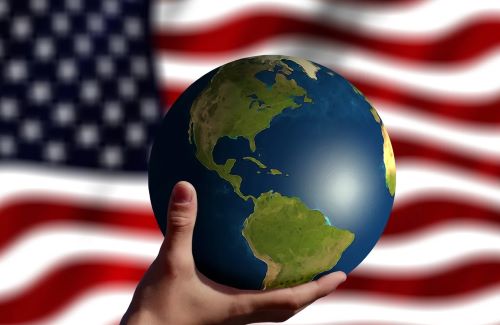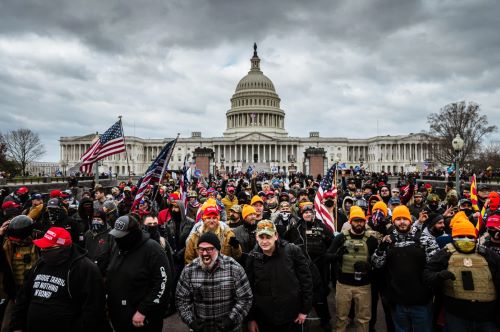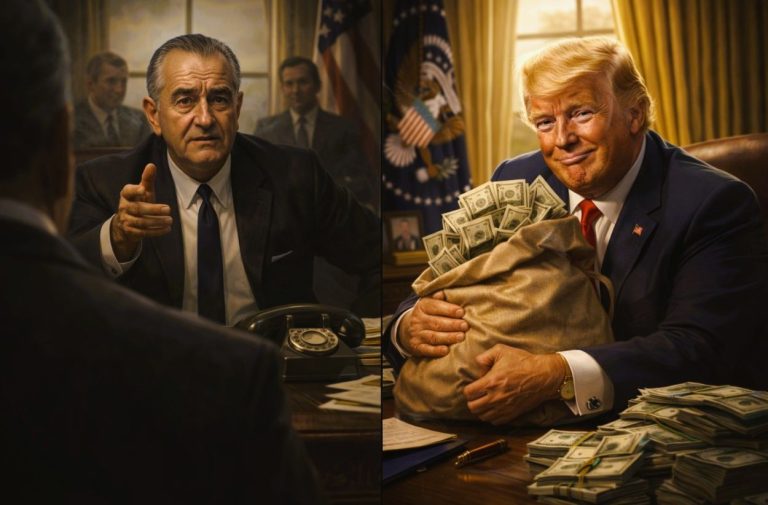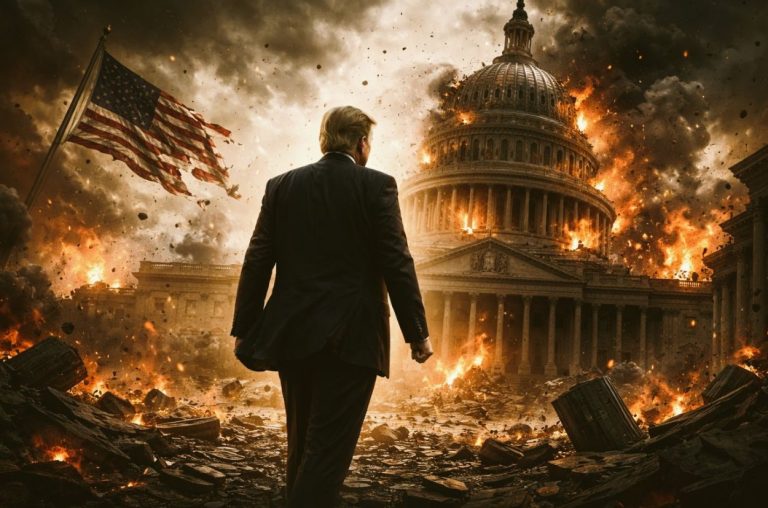

If the U.S. hopes to regain its standing, it must first confront the reasons for its diminished stature.

By Matthew A. McIntosh
Public Historian
Brewminate
For most of the 20th century and into the early 21st, the United States was widely perceived as the world’s dominant power—militarily, economically, and ideologically. It stood at the helm of international order, shaped the rules of global commerce, led military alliances like NATO, and projected the ideal of liberal democracy as the model to follow. American presidents, for better or worse, could alter global narratives with a single speech. But in recent years, that supremacy has been challenged not only by rising powers like China, but also by an accelerating erosion of global trust in the U.S. as a competent, reliable, or even rational actor on the world stage.
The change has been gradual yet unmistakable. It is no longer uncommon for world leaders to openly mock or dismiss American policy positions. Allies increasingly pursue their own strategic goals without consulting Washington. Formerly pliant international institutions now assert independence. Even adversaries, once cautious of U.S. reactions, increasingly act with boldness, apparently unafraid of consequences. The cumulative effect is a striking new global reality: many nations no longer take the United States seriously.
A major turning point in this decline was the Iraq War, a conflict predicated on faulty intelligence and waged in defiance of significant global opposition. The invasion and its chaotic aftermath shattered the illusion of American infallibility and alienated long-standing allies. European governments that had once marched in lockstep with Washington began voicing dissent more openly. The Bush administration’s doctrine of preemption was widely perceived as arrogant and destabilizing, and it left a residue of distrust that still lingers.
Then came the 2008 financial crisis. Born in the deregulated U.S. mortgage and banking sectors, the crisis rippled across the globe and revealed deep structural vulnerabilities in what had been sold for decades as a superior economic model. Countries from China to Germany began openly questioning the wisdom of the neoliberal American system. The myth of U.S. economic invincibility crumbled, and with it, a key pillar of American global credibility.
Even under President Barack Obama, who was broadly respected abroad, the United States often struggled to follow through on its own promises. Obama’s celebrated 2009 Cairo speech raised hopes of a reset with the Muslim world, but U.S. policy on the ground—drone strikes, arms deals with Gulf monarchies, tepid responses to democratic uprisings—told a different story. The pivot to Asia never fully materialized, and the red line in Syria that was never enforced raised new questions about Washington’s reliability.
The Trump era dramatically accelerated the decline. Under Donald Trump, America became unpredictable and transactional. Longtime allies like Canada, Germany, and France were treated with suspicion, even hostility, while authoritarian leaders in Russia, North Korea, and Saudi Arabia were praised. Trump’s withdrawal from the Paris Climate Accord, the Iran nuclear deal, and multiple U.N. agencies signaled a retreat from multilateralism and a disdain for international norms. Allies accustomed to stability and consultation were left scrambling, unsure of whether treaty commitments still held weight. American credibility was not just damaged—it was thrown into question.
In Europe, NATO allies began openly discussing a “strategic autonomy” independent of U.S. military leadership. French President Emmanuel Macron has repeatedly warned that Europe can no longer rely on the United States, suggesting that the transatlantic alliance is, at best, in need of reinvention. Germany, traditionally cautious in foreign policy, has increased defense spending and pursued closer ties with China—partly to hedge against an unreliable Washington. Even the United Kingdom, historically America’s closest ally, is increasingly pursuing its own course in global diplomacy.
In Asia, China has taken full advantage of America’s disarray, positioning itself as a more consistent and pragmatic partner to countries in Africa, Latin America, and Southeast Asia. Through its Belt and Road Initiative, Beijing is building infrastructure and influence across the globe, often filling the vacuum left by a retreating U.S. presence. Nations in the Pacific, once firm in their alignment with Washington, are now increasingly hedging—accepting Chinese investments while keeping American ties at arm’s length. The Philippines, under President Rodrigo Duterte and beyond, has flirted openly with pivoting away from its alliance with the U.S. in favor of Beijing.

Washington’s domestic instability also plays a significant role in diminishing its international stature. The January 6, 2021, insurrection at the U.S. Capitol shocked the world. To many outside observers, it symbolized not just a moment of chaos, but a profound unraveling of American democracy. The rise of conspiracy-driven politics, the erosion of public trust in institutions, rampant political polarization, and the increasingly real threat of democratic backsliding have all made other countries question whether the U.S. is still a functioning role model, let alone a leader of the free world.
The chaotic withdrawal from Afghanistan in 2021 was another critical blow. Though the war’s end was broadly supported, the manner in which it unfolded—leaving allies stranded, abandoning billions in equipment, and collapsing the Afghan government overnight—was widely condemned as incompetent. NATO allies, who had supported the U.S.-led effort for two decades, were barely consulted. The message was clear: America would act unilaterally, even in ending a multilateral mission, and could not be counted on to finish what it started.
More recently, the paralysis of the U.S. Congress, frequent government shutdown threats, and brinkmanship over the debt ceiling have created an image of a country unable to govern itself, much less guide others. The tendency of each new administration to reverse the previous one’s foreign policies has made long-term agreements difficult to trust. Climate commitments, trade deals, and military arrangements all seem subject to the winds of the next election. Why should other nations invest in American leadership when it may evaporate in four years?
Tariff policy has further eroded international confidence in the United States, especially during and after the Trump administration’s aggressive use of tariffs as a blunt political tool. Traditionally seen as a champion of free trade, the U.S. veered sharply into protectionism, imposing sweeping tariffs on allies and adversaries alike—most notably on China, the European Union, and even Canada. These measures sparked retaliatory tariffs, disrupted global supply chains, and strained diplomatic relationships. The uncertainty surrounding U.S. trade policy made many nations question the reliability of American economic commitments. Even after changes in administration, many of these tariffs remained in place or were modified only slightly, signaling to the world that U.S. trade policy is increasingly driven by domestic populist pressures rather than coherent long-term strategy. For trading partners, this has reinforced a perception of the United States as a fickle economic partner—unpredictable, reactive, and often more concerned with short-term political wins than stable international cooperation.
Compounding this decline is the rise of competent, confident challengers. China’s growing influence in global institutions like the WHO and the UN, Russia’s assertive military posture, and the emergence of regional powers like India, Brazil, and Turkey—all point toward a multipolar world in which the U.S. is no longer the sole superpower. These nations are not necessarily hostile to America, but they no longer defer to it. They pursue their interests, form their alliances, and speak their minds without waiting for American permission.
This is not to say that the United States has become irrelevant. Its military remains unmatched, the dollar still dominates global finance, and American culture continues to wield massive soft power. But these advantages are no longer sufficient to compel obedience or admiration. Influence today must be earned and sustained, not presumed.
If the U.S. hopes to regain its standing, it must first confront the reasons for its diminished stature: a foreign policy too often shaped by domestic partisanship, a political system that appears broken, and a global vision that lacks clarity or consistency. Rebuilding trust will require humility, honesty, and above all, reliability. Without those, the trend will only continue—and the world will keep moving on, with or without American leadership.
Originally published by Brewminate, 06.19.2025, under the terms of a Creative Commons Attribution-NonCommercial-NoDerivatives 4.0 International license.


